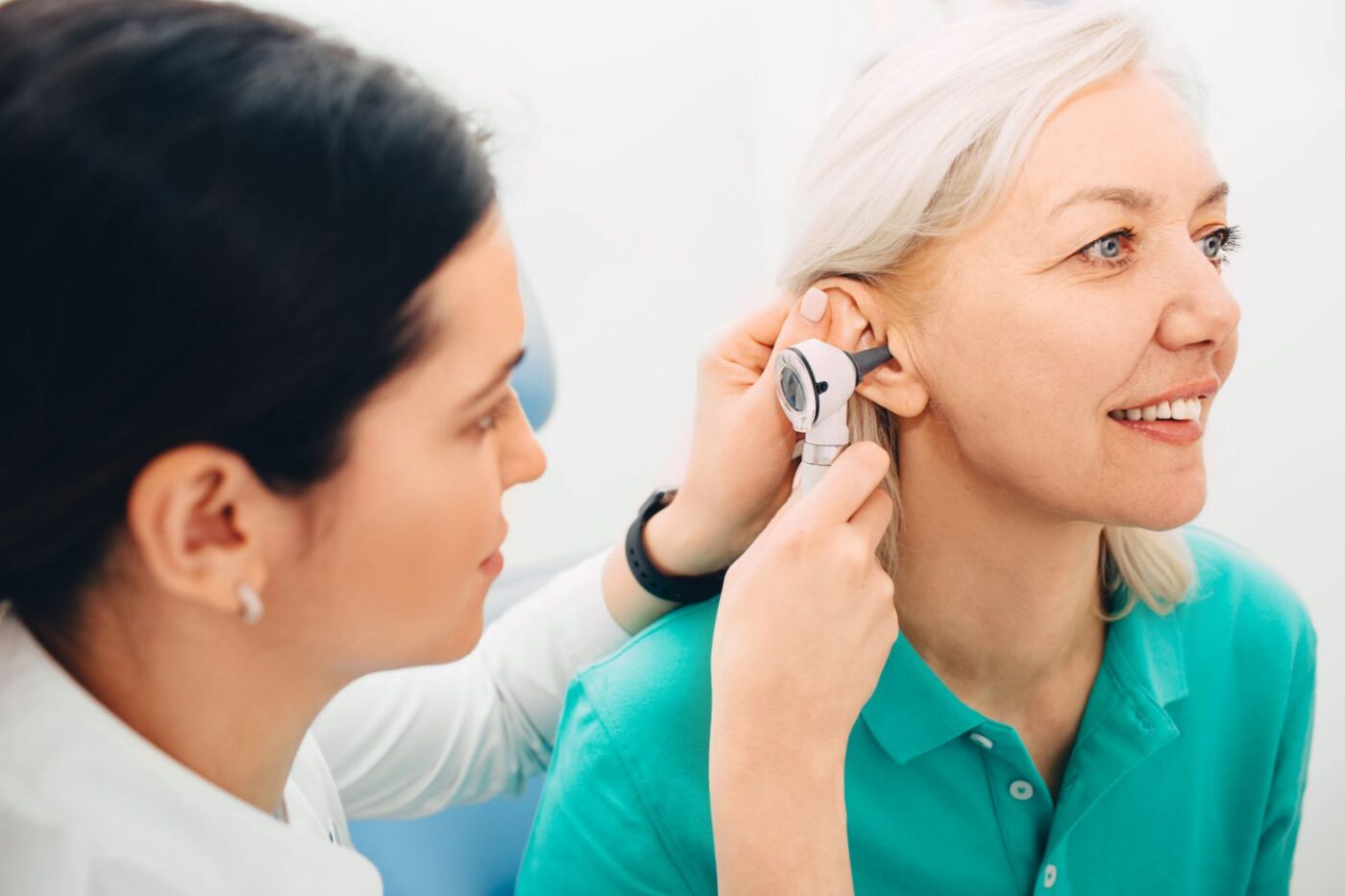Should I Get My Hearing Checked?

Sudden Hearing Loss
Sensorium hearing loss (SSHL), also known as sudden hearing loss, is a rapid and unexpected decline of your hearing. The sudden and surprising onset makes it difficult to proactively deal with it and can have an alarming impact on your daily life. However, it is important to note that you are not alone. It is essential to seek treatment within 48 hours of the onset of hearing loss to ensure the ability to make a recovery from the sudden loss. Although it may be frustrating, there is hope and ways to deal with the situation.
Get a Hearing Assessment
Make sure to seek medical attention with a doctor immediately, the first 48 hours are crucial to ensuring your ability to hear. This cannot be overemphasized. Many believe the loss may be due to earwax buildup, a sinus infection, or another type of condition. A delay in receiving a diagnosis and care has a chance to decrease the effectiveness of the treatment received. Once you have seen your doctor, it would be beneficial to come in for a hearing test. This will give you guidance on the state of the hearing loss. Additionally, this will give you a baseline for any changes to your hearing that you may experience in the future.
Next Steps
If your hearing practitioner has deemed you to have a hearing loss in one or both ears, these are the next steps for you. Step 1: Bring your results directly to the emergency room at your local hospital. By having your results in hand, this will allow the on call Ear Nose and Throat doctor to make a quicker assessment for treatment purposes. Step 2: follow all directions given by the doctor for continuous treatments if necessary. Step 3: In some time after your visit, book an appointment with your hearing practitioner to reassess your hearing to compare the previous results.
Outcomes
In any situation when dealing with sudden onset of hearing loss each outcome is unique. Depending on multiple factors such as, time it took to receive treatment or pre-existing medical conditions relating to hearing loss. Some patients are fortunate to recover 100% of their hearing back after treatment, where some are much less fortunate. For those cases where we cannot regain 100% hearing it is not an easy fact to absorb. However, in many cases there are still options that exist to help regain hearing through customized devices that your practitioner can discuss with you in detail.
Looking Ahead
In approximately 90% of instances, the cause of the sudden hearing loss will not be found as it can range from infectious diseases to head trauma. Only 10% of individuals learn what their hearing loss stemmed from. Although it may be a difficult situation to accept, it is essential to move forward . Directing your energy towards improving your situation and any challenges that stand in your way will help in your journey.
It is normal for sudden hearing loss to lead to a variety of emotions from denial to anger and sadness. Understand that it is normal to feel these host of emotions and allow yourself time to process. However, it is important to look forward. If you are having difficulties accepting your hearing results seek help. There are a variety of counseling services available to those with hearing loss that can aid in your ability to improve your life.
You Might Also Like: Top 6 Reasons to Consult a Hearing Care Professional
Take Action
Each hearing loss is different, so no one knows exactly what you are going through. It is important to communicate your needs to others, so that they can help you. Talking to a friend or family members about your preferred ways to communicate can reduce frustration and ensure you are part of the conversation. For example, if you prefer to have a closer seat during work meetings, at church or even at home, make sure you ask for it. It is important to advocate for yourself when it comes to your hearing.
Alleviate Stress
Adjusting to new forms of communication and sudden hearing loss may be a stressor. However, ignoring your hearing loss is not a good solution as it can lead to social isolation and even depression. Some techniques to help manage this stress would be to:
- Ensure you are not overloading your schedule
- Partake in activities you enjoy doing
- Continue to socialize with those around you
- Try new hobbies that may be relaxing like reading or meditation
Should I get my hearing checked?
Even if you are not experiencing difficulty with your hearing, we recommend getting a hearing test to establish a baseline. Our hearing changes with time as we’re exposed to different noises, especially in loud environments. Your baseline results can be used to track any changes that happen to your hearing. This makes it easier to understand where you may be experiencing new difficulties.
Typically, hearing loss begins after the age of 50, and by 60 3 in 4 people have some sort of hearing loss. Although, it Is not unusual for children and young adults to experience hearing difficulties as well. It is common to experience high frequency hearing loss first as our hearing gets weakened through the years. Such high frequencies aren’t normally perceptible in our daily lives. As such, hearing loss isn’t noticed until it gradually worsens and becomes more noticeable. As the changes happen over time this is often more detectable to our loved ones. They may begin to notice when you can’t hear little things, like you asking them to turn down the TV. Although it may not be easy to take the first step, ignoring hearing loss can lead to a reduction in ability to communicate in our daily lives and even lead to depression. Acknowledging hearing loss is not easy but can greatly improve your situation.
We recommend checking your hearing every 12 months if you are over the age of 50 or work in loud environments. Setting a baseline for your hearing is important as changes can be tracked over time.
You Might Also Like
Top 4 Major Causes of Hearing Loss
What Is Tinnitus? Causes, Symptoms, and Treatment Options
Does Tinnitus Get Worse With Age?
Have Questions?
Call our office if you have any questions about your hearing loss or anything else related to hearing. We are happy to help and answer any questions you may have.





